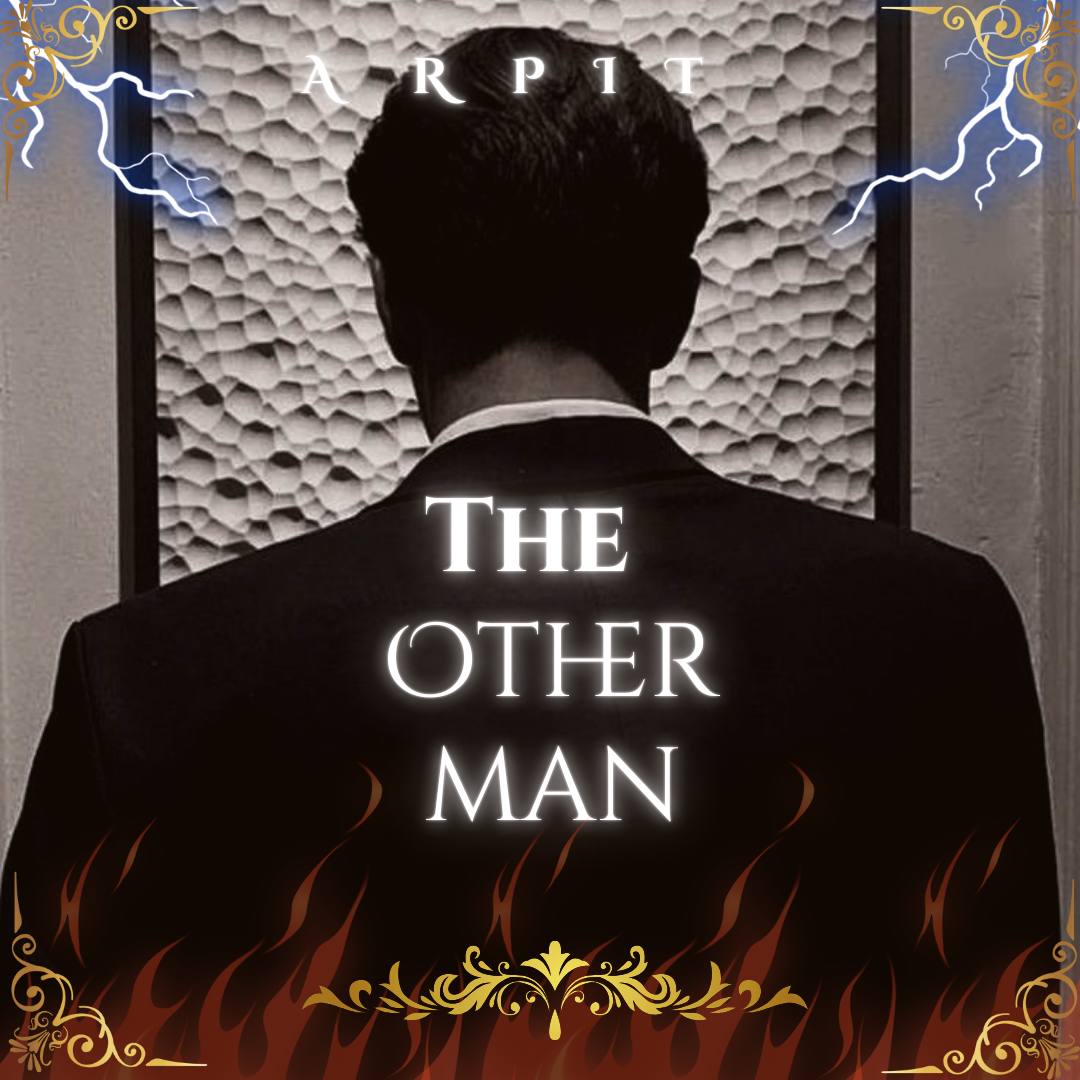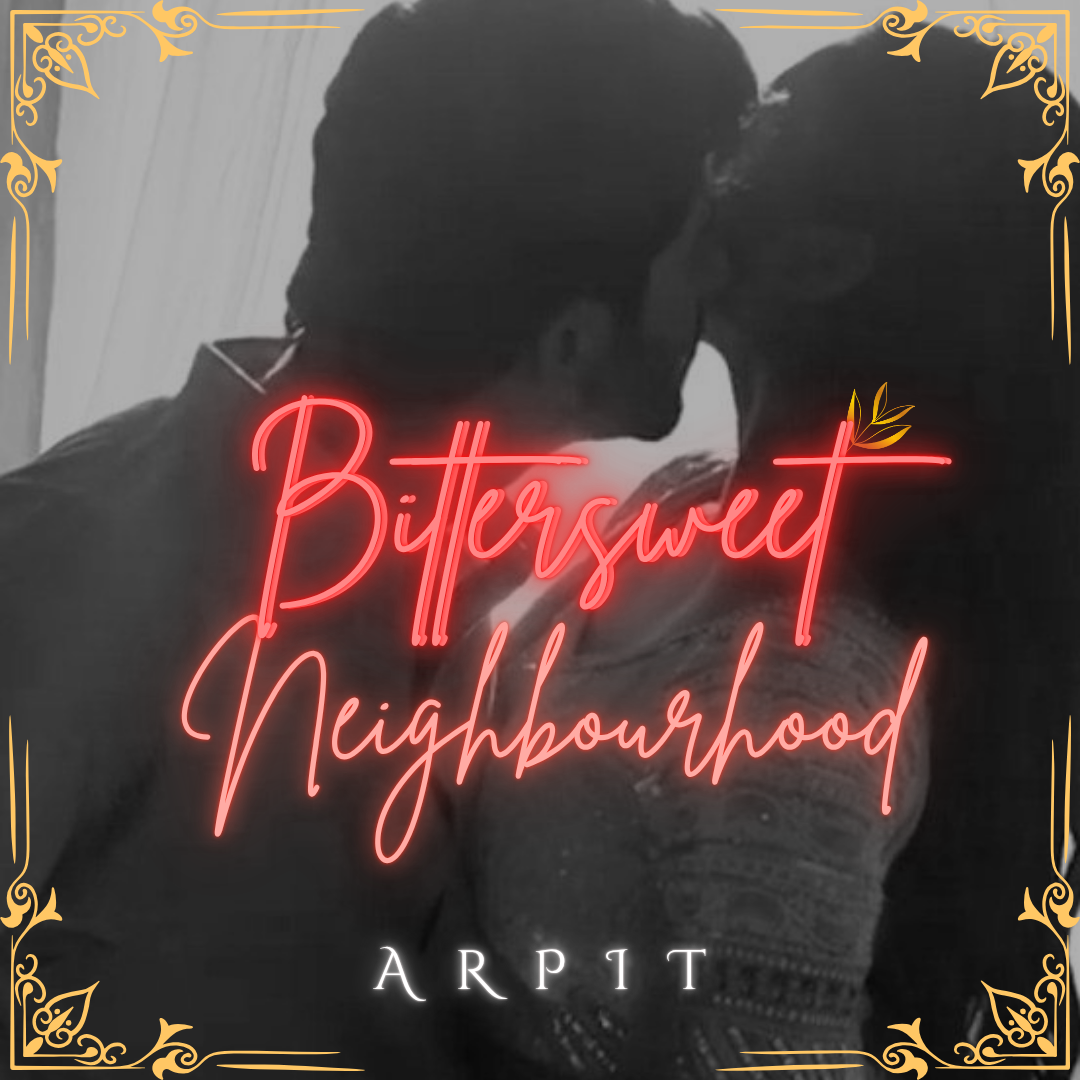
Meera found him in the corner of the courtyard, sitting against the old neem tree where he often went when silence was easier than words. The thali in her hands still gave off the warm aroma of turmeric and ghee, and the rotis were soft beneath the cloth.
She didn’t speak at first. She just sat beside him, placing the plate between them and resting her hand lightly on his back.
After a moment, she said softly, “You haven’t eaten a single bite since the evening.”
Rudraksh didn’t look at her. His voice came low, almost lost in the rustle of leaves. “I don’t think Baba will ever be proud of me.”
Meera sighed—long, gentle, like a breeze easing into a quiet storm.
“No, beta,” she said, brushing a stray strand of hair from his forehead. “That’s not true. Your father… he’s just a man who carries too many expectations in silence. Not prideful, but afraid. Afraid that you might walk the hard road he once walked.”
Rudraksh looked at her, confusion lining his eyes. “But he never tells me that. He only sees what I haven’t done. What I’ve failed at.”
Meera smiled faintly, looking down at the brass thali.
“Your Baba wasn’t born with comfort, Rudra. You know that. Your Dadaji—he’s a temple priest. A pandit who spent his whole life giving wisdom and prayers to others, while often skipping his own meals. They didn’t have much. No luxuries. Just enough food, and books borrowed from others.”
She paused, her voice warm with memory. “But your Dadaji gave everything he had so your father could dream. He worked at the temple by day, copied scriptures by night, did rituals for families who barely paid him, all so that your father could study.”
Rudraksh turned slightly toward her, his gaze softening.
“Your father became a doctor not just out of ambition,” she continued, “but out of gratitude—and a promise to himself: that his own son would never have to fight through poverty or uncertainty the way he did.”
She placed a piece of roti into his hand and then gently lifted it to his lips.
“He doesn’t hate you, Rudra. He’s just afraid—afraid that you’re lost. And it hurts him because he loves you.”
Rudraksh chewed slowly, his chest tightening with emotion.
“I don’t know if I want to become a doctor… or an engineer,” he whispered. “But I know I love writing. It’s the only thing that feels real to me. But I never thought it could be… a path.”
Meera nodded with the calm understanding only a mother could offer.
“Then walk that path,” she said. “If you truly love it, walk it. But don’t walk it halfway. Give it your all. Show your father, not through rebellion, but through your success, that this too can be a life. That your gift isn’t a mistake—it’s just waiting to be recognized.”
She tore another piece of roti and fed it to him, her eyes misty but firm.
“Your Baba wants only one thing, Rudraksh—to see you stand tall, wherever that is. Whether in a clinic or with a pen in your hand, he just wants to know you’re not suffering in silence. He’s still learning how to say it.”
Rudraksh leaned into her shoulder then, silent tears sliding down his cheek.
And beneath the moonlight, surrounded by neem leaves and old temple stones, he let himself be a son again—held, fed, and understood.
The morning sun spread its soft gold across the rugged countryside, casting long shadows over the semi-constructed pillars and dusty lanes of the future resort site. Cement mixed with dew in the air, and the hum of construction had not yet begun—only silence, broken now and then by the caw of distant crows or the clink of a spade dropped against stone.
Devanshi sat quietly in the backseat of a sleek black SUV, her dark sunglasses shielding her tired eyes. Her long dupatta fluttered gently in the morning breeze that seeped through the half-lowered window. She had dressed in understated elegance—an ivory kurta with light embroidery and pale blue juttis, sharp enough to remind anyone who she was, but comfortable enough for the dusty farewell drive.
Today was her last morning here. The site visit would be brief—just a final look at the land where her next luxury resort would rise, like a palace from stone. And then, she’d leave.
Back to Delhi. Back to noise and meetings, strategy decks and dinner tables that smelled of negotiation more than food.
In the front seat, Niharika was scrolling through her tablet, her voice crisp with the weight of responsibilities waiting at the capital’s doorstep.
“Once we’re back, we’ll have to meet the CM,” Niharika said without turning around. “The file’s almost cleared but his signature is still pending. No signature, no state permission. Without that, Jaipur’s off the table.”
Devanshi didn’t respond immediately. Her gaze remained fixed on the landscape outside—the dry fields, the half-built stone arches, a solitary peepal tree standing near the entrance like an old witness.
Niharika glanced back briefly, then continued, “We’ll also need to push for the clearance certificate. And you’ll have to attend the roundtable meeting on Thursday. You promised the investors.”
“I know,” Devanshi said, finally. Her voice was calm, clipped, yet touched with something distant. “Just let me breathe here a little longer before Delhi takes over again.”
Niharika said nothing. She understood. This wasn’t just a work trip for Devanshi—it never had been. There was something about this place. A silence in the air, a weight in the soil. Something that lingered beneath her polished façade, behind her measured tone.
The driver started the engine.
“We’ll stop at the site for twenty minutes,” Niharika said, eyes back on her screen. “Then we head straight to the airport . Your tickets are confirmed for the 3:40 flight.”
Devanshi gave a small nod, her fingers tracing absent lines against the window glass.
As the car rolled forward, kicking up a slow trail of dust behind it, she watched the village vanish in the rearview mirror—the temples, the narrow lanes, the faces she hadn’t entirely forgotten. She didn’t say it aloud, but something about leaving today felt heavier than usual.
Like a chapter was ending… before it had even begun.
The moment they stepped onto the construction site, the ground seemed too quiet—unnaturally still, as if something was holding its breath.
Then, without warning, the air shifted.
A sharp, splintering crack rang out. Heads turned.
One of the towering concrete pillars—unfinished, poorly secured—began to sway like a tree caught in a storm. Shouts erupted from every corner of the site.
“Hat jao! Sab peeche!”
(Everyone stay back..!!)
But the warning came too late. The massive pillar groaned under its own weight and collapsed with a deafening thud, sending a blinding cloud of cement dust into the air.
Screams followed.
Devanshi, who had instinctively rushed forward, was struck by a flying metal rod. She stumbled, her left arm slashing open as it caught the sharp edge of rebar. Still, she pulled one of the younger laborers to safety, coughing violently as debris rained down around them.
Chaos exploded—men shouting, blood on sand, limbs twisted unnaturally. Niharika ran forward, screaming her name. “Madam!”
Devanshi’s kurta was soaked through at the shoulder, her hair caked with dust, eyes burning. She tried to stand, slipped, then finally steadied herself against a broken wall.
“Get the ambulance,” she croaked. “Now!”
Minutes Later – In the Ambulance
The wailing siren echoed off the rural roads as the ambulance sped toward the district hospital. Inside, Devanshi sat beside the stretcher of an unconscious worker. Her own wound had been bandaged hastily with gauze that was already turning dark red.
Niharika’s phone clutched tightly to her ear.
“Pick up, pick up…” she muttered.
On the screen: Niharika – Calling…
No answer.
She tried again. “Come on, Sir, pick up the phone!”
A robotic voice answered instead. “ Mr. Devraj Rathore is currently in a board meeting. Please leave a message.”
“Sir Madam in an ambulance!” she shouted into the receiver. “There’s been an accident at the Manali site— Workers are hurt. You need to—hello? Hello?”
The line went dead.
Devraj was engrossed in an important meeting. His phone had been switched to silent mode, and as a result, he remained unaware of Niharika’s repeated calls.
“Doctor…!”
Devanshi’s voice rang out the moment she burst into the hospital’s main corridor.
Dr. Vedas Bhatt, accompanied by a group of fellow physicians, appeared almost instantly. Their expressions turned grave at the sight of the injured crowd staggering in behind her.
“Take them to the emergency ward—immediately!” Dr. Bhatt commanded, his tone clipped but composed.
Without hesitation, the nurses and doctors sprang into action, guiding the wounded toward the emergency room, their footsteps echoing against the sterile tiles.
Devanshi slumped onto a bench nearby, her face pale, eyes wide with worry. A cold knot of fear twisted in her stomach. Will they be all right? she wondered, her thoughts spiraling with each second that ticked by.
“Ma’am, your arm—it’s bleeding. Please, let me bandage it,” Niharika said, approaching her with a sense of urgency.
“I’m fine,” Devanshi replied softly, though her trembling hands and crimson-streaked sleeve told a different story.
The sterile white light of the hospital flickered for a moment—just once—but enough to make Devanshi’s heart jump. Somewhere down the corridor, a metallic clang echoed, sharp and jarring, like a tray being dropped. She flinched.
Inside the emergency ward, chaos hummed beneath the surface. Monitors beeped in frantic rhythm. Doctors barked quick orders. The smell of antiseptic mixed with something far more metallic—blood.
Devanshi's breath came shallow now, not just from the pain in her arm but from something deeper, more primal: fear to loose those people.
Sneak peek- Chapter 9
The officer sighed and handed it over. "Yes. We received an anonymous tip about safety violations, and then the collapse happened. That’s enough for probable cause, but—"
"Probable cause isn’t the same as proof," Khatri cut in smoothly. "And detaining her in a cell without bail for a first-time accusation of negligence — that’s a stretch."
Devraj’s eyes narrowed as he read through the document. "Anonymous tip. No name, no verified source. And this is what you built a case on?"
The SHO looked away. "We were under pressure. The media, the casualties—"
"So you made her the face of it all," Devraj said sharply. "She’s not your scapegoat."










Write a comment ...